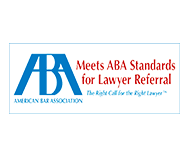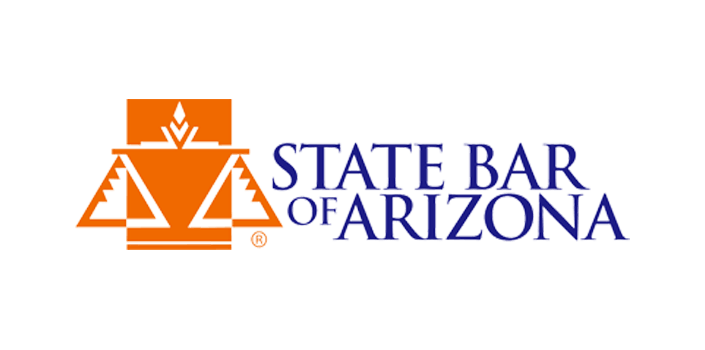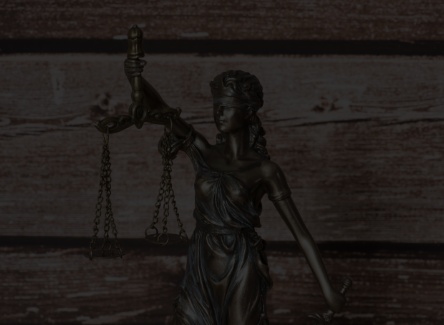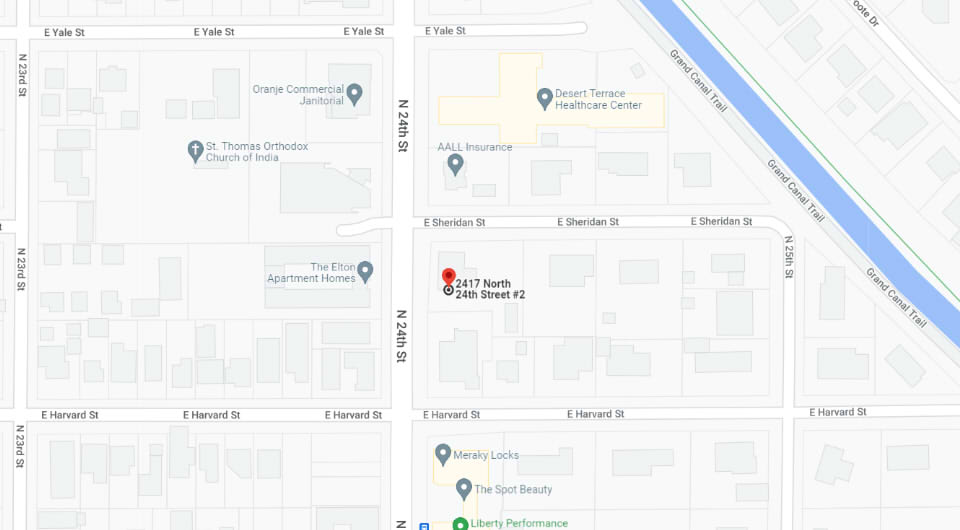Motorbikes are fast and provide a convenient means to navigate busy cities. Unfortunately, a collision can cause catastrophic injuries because riders can only depend on protection from their clothing and helmet. With roads packed with hazards, distracted drivers, or reckless automobile operators, a minor miscalculation can lead to a life-changing accident. At Phoenix Personal Injury Attorney Law Firm, we stand for the victims. Our seasoned team of lawyers can help you fight for the compensation you deserve following a motorcycle accident.
Nursing injuries following a collision can put your life on hold for weeks, months, or years. If someone else’s negligence caused an accident, we could help protect your chances of receiving maximum compensation. An ideal settlement should cover your lost wages, pain, suffering, property damage, treatment, and rehabilitation costs. Seeking prompt legal assistance makes it easier to gather essential information to prove fault and ensure you have a strong case.
Calculating the Value of Damages Following a Motorcycle Accident
Each motorcycle accident is unique. It takes having a competent attorney to ensure that insurance companies consider all the vital facts when calculating the value of damages suffered.
There are three main types of damages in any personal injury case. They include special damages, general damages, and punitive damages. While the first two are meant to cushion the victim for their economic losses, pain, and suffering as they seek recovery, punitive damages punish the defendant for their reckless or negligent actions.
Let us have a look at the three types of damages in-depth:
Special Damages (Economic Damages)
Special damages are calculated by establishing the total sum of economic losses.
Common types of this type of damages include:
- Medical bills and expenses — Motorcycle victims are entitled to full reimbursement of all necessary and reasonable expenses incurred when seeking medical treatment and rehabilitation. This includes costs allied with hospital bills, surgeries, medications, and medical supplies.
- Lost income and benefits — If you have to skip workdays, you qualify for the reimbursement of lost revenue. This includes lost wages, bonuses, commissions, incentives, and benefits. Victims who sustain permanent disabilities or impairments should receive compensation for lost earning capacity or a diminished earning capacity.
- Property damage — It is common for motorcycle accident victims to suffer some property damage following a collision. You deserve a settlement equivalent to the cost of motorcycle repair or your bike’s value in case of total loss. Also, you should receive compensation for other assets damaged during an accident, like your cell phone, rider jacket, and helmet.
Keeping all your receipts intact after seeking medical care or repairing damaged property remains imperative. With a skilled attorney on your corner, you can look forward to receiving maximum compensation for all reasonable out-of-pocket expenses, including the following:
- Costs allied with at-home care or help with household chores and personal hygiene
- In-home healthcare expenses
- Travel expenditure to and from hospital
- Costs for modifications to accommodate a permanent disability, etc
General Damages (Non-Economic Damages)
Non-economic damages are intangible and challenging to calculate. An easy way to demonstrate your pain and suffering is to keep a detailed journal that tells the story of your struggles during the recovery period. For instance, note down the activities you cannot perform, bouts of anxiety and depression, daily pain levels, and the impact of your state of health on your relationships.
Common types of non-economic damages include:
- Pain and suffering damages: Pain and suffering include physical and psychological pains and discomfort. An accident can leave you suffering from bodily aches, mental anguish, emotional distress, depression, anxiety, trauma, and embarrassment (especially if you require toileting help).
- Permanent disability/ impairment: motorcycle accidents are notorious for causing disfigurement, scarring, and impairment. The severity and type of impairment you suffer will play a leading role in dictating the amount of compensation you deserve
- Loss of life enjoyment: some injuries can leave a motorcycle accident victim paralyzed, brain-fried, or scarred for life. You deserve compensation for any physical, cognitive, and emotional disabilities stemming from an accident. Note that these disabilities hinder you from enjoying the same freedom and activities as you did before an incident.
Punitive Damages
Not all motorcycle accident victims receive compensation for punitive damages. Special and general damages should ideally help return you to the state you were before an accident and make you economically whole. However, punitive damages do not cover any losses suffered. Instead, the settlement is awarded to punish a defendant for negligent or reckless conduct.
For you to receive a settlement for punitive damages, your attorney must prove that the defendant acted willfully with malice, wantonness, misconduct, or a conscious disregard for the consequences of their actions. Often, a judge will agree to award punitive damages for an accident caused by an impaired driver. The level of heinousness demonstrated by the defendant will help the jury decide the exact amount you should receive.
So how much money will you receive in compensation?
Numerous factors play a fundamental role in determining the value of a personal injury claim. These factors include:
- Type of injury and its severity
- Number of parties involved in a claim
- The total sum of economic damages
- Whether a victim sustained permanent disability/impairment
- Amount of insurance available
- Your level of fault in an accident (if any)
While putting a price tag on economic damages is straightforward, insurance companies often use the multiplier rate formula to establish the value of non-economic damages. Note that the insurance will always seek to downplay your injuries. Your lawyer's work is to use the evidence and the law to place a fair price tag on your claim.
The multiplier rate formula is based on a 1.5 to 5 scale where 1.5 represents minor injuries, and 5 implies the most severe. For instance, a victim who suffers permanent or highly severe injuries receives a 5, while a person with a few bruises on non-delicate body parts gets a 1.5. The insurance company then multiplies the awarded rate by the total economic losses.
For instance, Betty is involved in an accident that leaves her with permanent injuries rated 5. She spends months in hospital and suffers economic losses worth $400,000. This means that she is entitled to compensation for noneconomic damages worth at least $2 million.
Factors That Influence a Motorcycle Accident Settlement
One of the significant factors that impact a motorcycle accident settlement is the extent of damage suffered by a victim. Ideally, compensation should cushion victims from economic losses allied with a collision. As mentioned above, you deserve compensation for both monetary and non-economic damages. A judge could also award punitive damages in cases where a defendant portrays egregious conduct.
Here are two more factors that influence motorcycle accident compensation:
Liability
Liability is at the core of any personal injury claim. Auto insurance companies in Arizona provide compensation using a fault-based system. Before approving a claim, the insurer must look at the whole picture of an accident and gather information from photos, police reports, eyewitness accounts, and expert testimonies.
In some cases, multiple parties bear some level of fault in a crash. Insurance companies impose comparative negligence standards to assign each party their percentage of fault. For example, if you are 10% to blame for a collision, you are only eligible for 90% compensation.
It is necessary to enlist a skilled motorcycle accident attorney right from the start. Even when the facts are straightforward, you can expect insurance companies to attempt to shift the blame to you. Increasing your percentage of fault lowers the amount of compensation you deserve. A reliable attorney will help you prove liability and prepare the necessary documents to show your economic losses.
Settlement Negotiations
Settlement negotiations are dynamic and adversarial. Insurance adjusters are well trained to downplay the damages suffered by victims. Your best chance of receiving a full or fair settlement is to have a competent motorcycle accident lawyer fighting for your rights and best interests. Irrespective of the severity of the injuries you sustain, you can expect insurance adjusters to downplay your situation and offer the lowest settlement possible.
One of the surest tactics motorcycle attorneys use to gain the upper hand during negotiations is to paint a clear picture of a victim's losses, pain, and suffering. This ensures that the insurance company uses the correct multiplier rate formula when awarding compensation.
Note that the strength of the case can determine the multiplier formula. Insurance companies have no choice but to award the highest rate if a victim suffers severe injuries and can table the much-needed documentation as evidence.
Here are strategies an attorney can use to justify a high multiplier formula:
- Prove that the other driver is 100% at fault
- Have iron-clad proof of a victim’s injuries and economic damages suffered
- Show that all highlighted injuries emerged from the accident
- Establish the severity of injuries and highlight whether they will last for a lifetime and possibly cause permanent disability, disfigurement, or impairment
- Have the record of injuries and their severity verified by at least two doctors
- Highlight how the injuries can disrupt a victim’s life, familial relationships, or future earning potential
Your attorney can send a demand letter to the insurance company to make your expectations known ahead of time. While a demand letter cannot be used in court, it ensures the insurance adjusters understand why you deserve a specific settlement. A demand letter also clarifies that you are willing to put up a fight, increasing the odds of adjusters playing fair to allow negotiations to work. An attorney who has mastered the art of negotiation has better chances of arm twisting the insurance into providing maximum settlement before you opt for a trial.
How to Establish Fault in a Motorcycle Accident
Liability is smack in the center of factors influencing a victim's compensation amount. A skilled attorney will know the right tactics and strategies to implement to ensure you have a strong claim.
How to Determine Whether a Driver Is At-Fault
It is hard to determine who is at fault right after an accident unless the vehicle driver accepts the blame (which is unlikely). Generally, motorists owe other road users, including cyclists, motorcyclists, and pedestrians, a duty of care. The driver is liable for an accident if they fail to act as a reasonable person would under identical circumstances.
Three elements of negligence must be established when assigning liability to a driver:
- The vehicle driver owed you the duty of care
- The driver breached the duty of care (implied negligence)
- Because of the driver’s negligence, a motorcyclist suffered damages (injuries, property damage, or death)
Negligence per se is when an injured motorcyclist does not have to prove that an accident occurred because of a driver's negligence. For instance, a driver is “negligent per se” if a collision happens while violating traffic laws.
The elements of negligence per se are as follows:
- An accident happened as the defendant violated a traffic law, ordinance, or regulation
- Because of the driver’s actions (violations), a motorist suffered injuries, property damage, or death
- The damages suffered are a direct result of the driver violating a traffic law, ordinance, or regulation
- The violated rule, statute, or regulation was designed to protect the injured/dead victim
Some of the actions of a driver (violations) that imply negligence per se include:
- Distracted driving
- Over speeding
- Reckless driving
- Driving under the influence of alcohol or drugs
- Running a stop sign
- Following too closely (tailgating)
- Failure to yield
- Operating a road-unworthy vehicle
Irrespective of the turn of events following an accident, the worst blunder you can make is to admit fault. The other driver can try to pressure you to acknowledge some of the blame, especially if an accident was avoidable. Even if you were also at fault, do not admit this at the accident scene. Treat liability as a legal question and contact your attorney for dependable guidance.
How to Establish If Poor Road Conditions Caused an Accident
Sometimes, the cause of an accident is not another road user but the poor state of the road. Anything from uneven sidewalks, lifted asphalt, loose gravel, and damaged road signs can lead to a motorcycle crash.
The city has the duty to keep public roads in proper condition. Hence, if an accident happens because of the poor state of a public road, the city is liable for the injuries and damages suffered. Likewise, if an accident happens on private property, a property owner is to blame as long as a rider was not trespassing.
Here are the elements you must prove to show that the city, county, or government agency is to blame for the dangerous road conditions that caused your accident:
- A motorcycle accident happened on a City, State, or County-owned/ controlled property
- The road on the property posed hazardous conditions at the time of a crash
- The state of the road created reasonably foreseeable risks
- The County, City, or State was aware of the dangerous state of the road for long enough to take the necessary measures
- The poor condition of the road was a key factor leading to the plaintiff's injury
How to Establish Whether a Motorcycle Part Manufacturer Is To Blame
Even an experienced motorcyclist who rides defensively can crash out of the blue because of a defective piece of machinery or part. For instance, when riding at high speeds, faulty brakes can cause a collision if you cannot slow down or make an abrupt stop.
Often, the rider will not have a conclusive idea about what caused an accident or the defective part to blame. Again, your attorney can lend a hand with investigations as you focus on regaining your health.
Arizona product liability laws dictate that the business that designed, manufactured, or sold a defective product, part, or piece of machinery is liable for an accident that causes injury or death. If a faulty part/ product causes a motorcycle collision, you do not need to establish that the responsible company was negligent.
The law imposes strict liability if a product shows manufacturing or design defects. Moreover, the company is still liable if it fails to warn about any defects or designs that can cause accidents.
Here are the elements you must prove to establish product liability:
- The defendant (company) designed, manufactured, sold, or distributed a defective motorcycle product
- The product was faulty when it was sold or distributed
- The plaintiff used the motorcycle product in the reasonably foreseeable manner
- If not for the defect of the product, the plaintiff would not have suffered harm
You must not underestimate the importance of working with a seasoned motorcycle accidents attorney. The expert will help you build a strong case and file a lawsuit against a defective part manufacturer. How you handle the situation right from the start will dictate your chances of receiving maximum compensation.
What to Do Following a Motorcycle Accident
Motorcycle collisions can leave you nursing severe injuries. Unfortunately, even minor blunders following an accident can limit your chances of obtaining maximum compensation for the economic and non-economic damages you suffer.
Here are simple steps that can give you the best odds of obtaining a fair settlement:
- Step away from the accident scene but remain as close as possible. Check yourself for injuries and then help others involved in the wreck.
- If possible, move the wrecked motorbike from the road to allow the smooth flow of traffic.
- Report the accident by calling 911 and also request an ambulance if necessary.
- Exchange information with other parties involved in the accident. This includes your names, registration numbers, and address.
- Take pictures of the scene, including the wrecked motorcycle and even the skid marks on the road. You can also talk to eyewitnesses and request their contact details.
- Seek medical attention as soon as the police allow you to leave. It is essential to visit your doctor for a keen head-to-toe assessment even if you feel okay after a collision. It is common for some symptoms to emerge several hours or days following an accident.
- Contact the other party’s insurer and report the crash. You can then file a report of the collision right away. Ideally, it is best to file within 24 hours.
- Focus on recovering as soon as possible by following the doctor’s orders. Also, keep copies of your medical records and all other expenses you incur because of an accident.
- Seek legal counsel from a personal injury attorney before speaking to any insurance adjuster. The lawyer will educate you about your rights and the best way to protect your best interests.
Often, an insurance adjuster will approach you within a few days following the accident. The expert will seem to have your best interests at heart and could volunteer to make the situation easier by immediately offering you a settlement. Do not fall for this trap, and first consult with your attorney. You must remember that the work of an insurance adjuster is to mitigate risks for the insurance company.
The Motorcycle Accident Statute of Limitations
You have two years from the date of an accident to file a lawsuit with the civil court and pursue a personal injury claim in Arizona. It is always best to act quickly to ensure you beat the deadline. Note that irrespective of the severity of your injuries, you cannot recover a settlement if the statute of limitations expires. Talk to an attorney immediately to know about the few exceptions that apply.
Find a Motorcycle Accident Attorney Near Me
Hiring the right motorcycle accident lawyer can make all the difference in the outcome of your accident claim. You need an expert determined to deliver exceptional results by fighting for your rights and best interests. At Phoenix Personal Injury Attorney Law Firm, we can help you pursue justice for the economic and non-economic damages suffered. To us, you are more than a file number, and we will give your case the personalized attention it deserves. Your objectives drive our efforts, and we are always ready to push a case to trial if necessary. Call us now at 602-641-9589 for a free case evaluation.










